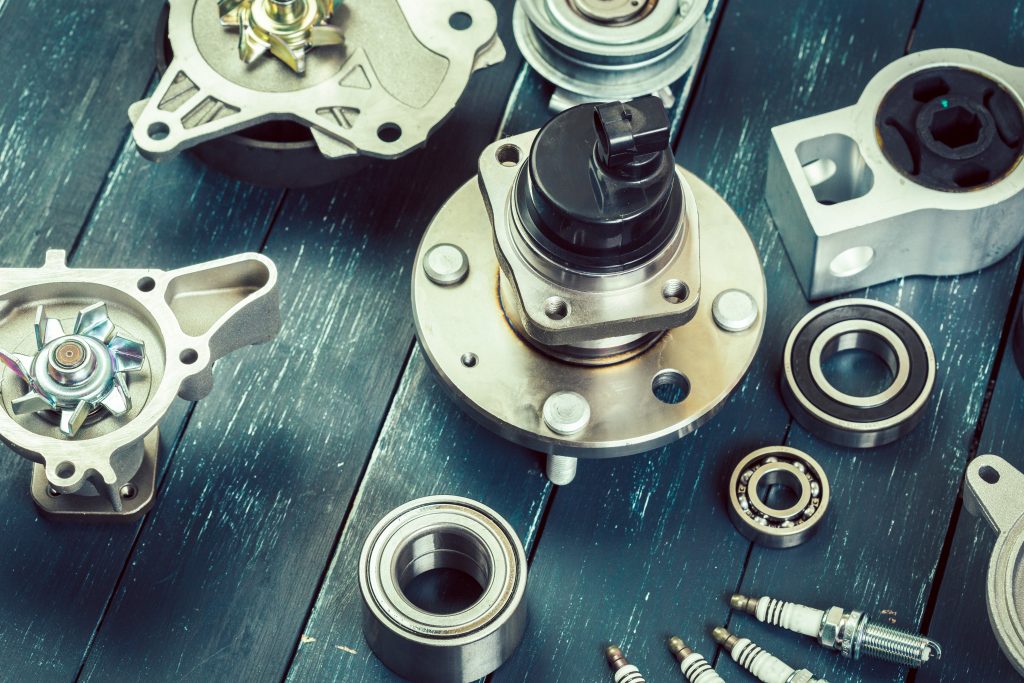
Insurance Coverage and OEM Parts
When your vehicle is damaged and you submit an insurance claim, you trust that the insurance company will deal in good faith. You rely on the insurer to honor the terms of the insurance policy when it estimates the repair costs of your vehicle. But what happens when the insurer fails to live up to this responsibility?
California law prohibits insurers from lowballing repair estimates by basing estimates on non-original repair parts and failing to tell the vehicle owner about the change. When insurers do this, vehicle owners may pay the price.
Original Equipment Manufacturer (OEM) Parts and Insurance Repair Estimates
California law requires insurers to provide accurate estimates of repair costs, including the cost of replacement parts. Parts made by your vehicle’s manufacturer are known as Original Equipment Manufacturer (OEM) parts. The manufacturer provides warranties that OEM parts meet the manufacturer’s specifications and will perform as designed.
OEM parts replace damaged parts with parts that match what the vehicle had when it was built. Yet not all parts come from auto manufacturers in perfect condition. Auto parts manufacturing facilities, like all manufacturers, produce a certain quantity of parts each year that are damaged, blemished, or otherwise unable to meet the manufacturer’s specifications.
Occasionally these parts are usable despite their defects. They may appear on the market under names like “Opt-OEM,” “Alt-OEM,” or “Surplus-OEM.” Yet these parts don’t perfectly match the OEM parts that came with the vehicle – and using them in repairs won’t restore your vehicle to its pre-damaged condition.
Why Do Insurance Companies Prefer Cost Estimates Based on Non-OEM Parts?
Because these parts are often cheaper than OEM parts, however, insurance companies may try to base their repair quotes on the cost of Opt-OEM parts rather than on OEM parts. The result saves money for the insurer but at the cost of the vehicle owner, who receives less compensation for the damaged vehicle than is necessary to return it to its pre-damaged condition.
In 2018, the California Department of Insurance issued guidance stating that insurance companies may not base their estimates on the lower costs of Opt-OEM, Alt-OEM, Surplus-OEM, or similar parts. In issuing its decision, the Department of Insurance cited 19 CCR 3353(b), which states that parts listed in a repair estimate must be new unless they are specifically listed as not being new.
In addition, the Department of Insurance noted that the regulations governing claims settlements in California state that “No insurer shall require the use of non-original equipment manufacturer crash parts in the repair of an automobile” unless certain conditions are met. Disclosing that non-original parts will be used is one such requirement.
Does It Matter Where My Repair Shop Buys Its OEM Parts?
Another way insurance companies seek to save money or to recover costs is by encouraging repair shops to purchase OEM parts only from specific vendors – even though California law prohibits insurance companies from doing this.
Typically, insurance companies won’t state directly that they’ll only cover repair costs if the shop buys its parts from a certain vendor. Rather, the insurer may state that it won’t pay extra for parts that are purchased from other sources. This behavior is also a violation of California insurance law, according to the Department of Insurance.
Similarly, insurance companies may not require that an auto be repaired at a specific repair shop. If a vehicle’s owner decides to take the vehicle to their own mechanic, the insurer must pay the reasonable repair costs, even if those costs are higher than the costs at the shop the insurer would have preferred.
Insurance adjusters’ primary responsibility is to their employer and their employer’s bottom line. When they have an opportunity to save money for the insurance company, they are likely to take it. In some cases, insurance companies will even violate or attempt to skirt the law in order to save money – and they may succeed when auto owners don’t know their rights or what the law requires.
One way to double-check that you’re getting a fair deal from your car insurance? Talk to an experienced attorney. A lawyer can help you determine what the law requires and what steps you can take to ensure your insurer plays by the rules.
If you’re dealing with insurance headaches over a damaged or defective vehicle, talk to an experienced California lemon law attorney today. An attorney can help answer your questions and provide the information you need to make better decisions about your next step.
SHARE
Lemon Law Categories
Over 97% Success Rate
In Lemon Law Claims
Business Law Categories
Highly recommend! Their service is superb! They will go above and beyond to get the job done! Thanks to Jessica Underwood who was so helpful! Best Lemon Law Attorneys around hands down.